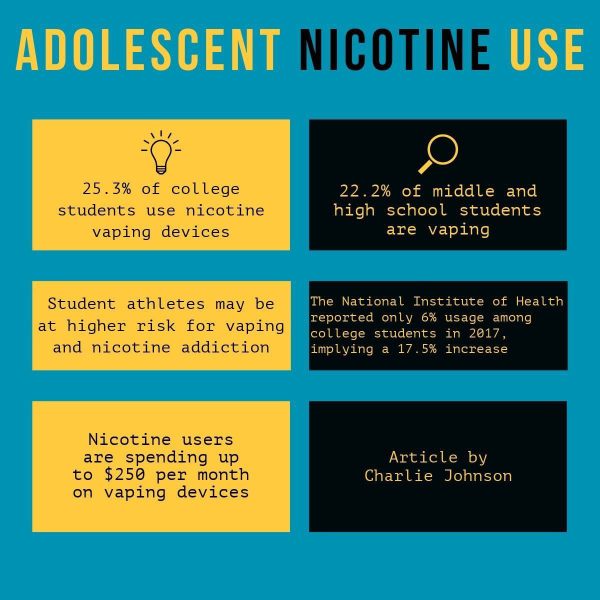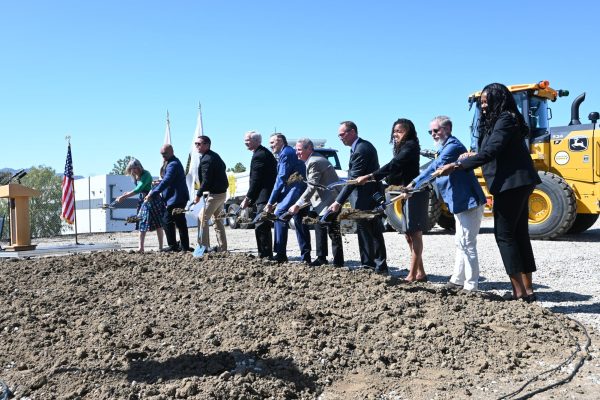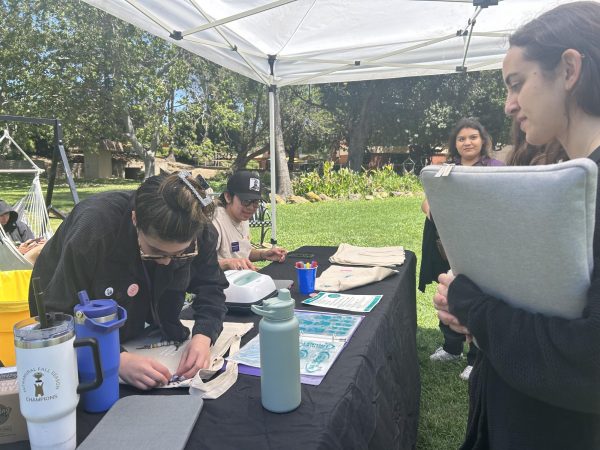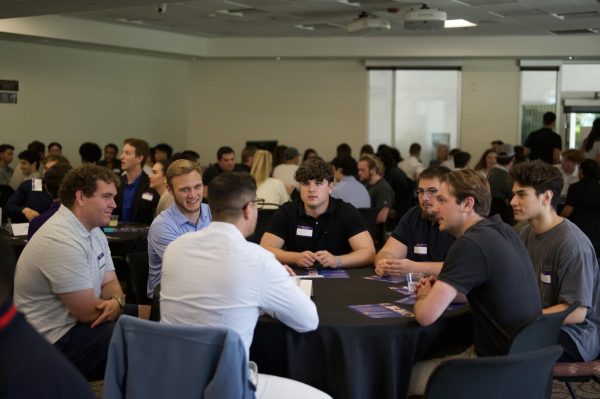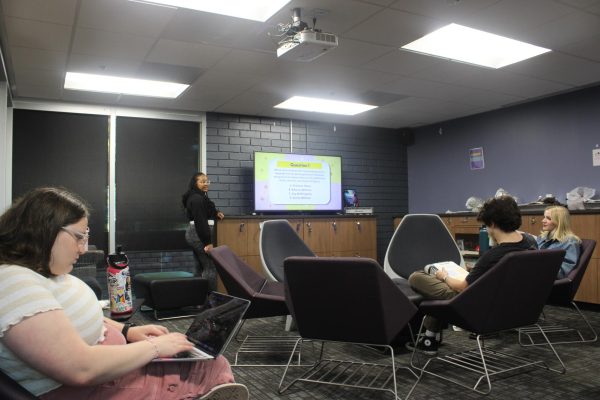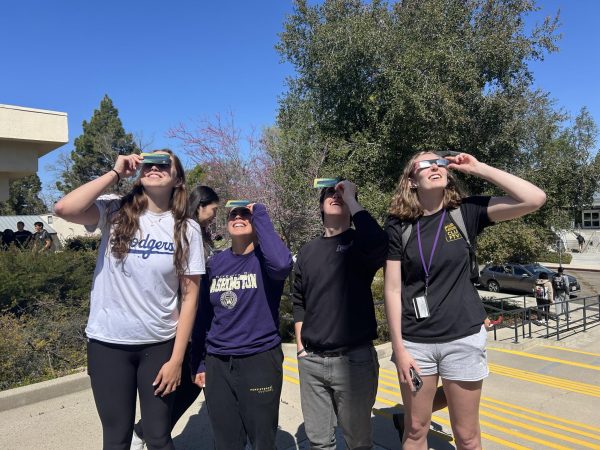Dr. Fogg’s new book: ‘Finding Jesus at the Border’ to be released
March 10, 2020
California Lutheran University Religion Professor Julia Lambert Fogg’s book “Finding Jesus at the Border,” comparing modern day stories of immigration and stories of immigration in the New Testament will be released on April 21.
“Getting interested in the immigration crisis that we have on the border really became about when I put together: what people were experiencing in Pasadena, with the legal issues with crossing the border, and the border crossing I was reading about in the Bible,” Fogg said.
Each chapter of the book compares a biblical story or person with individuals today. Most of the book focuses on individuals from the Latinx community, however there are also individuals from other backgrounds that share their experiences crossing borders in the book.
Fogg grew up in Pennsylvania, and her church would take trips to Mexico to teach Vacation Bible Study, where she was able to learn and gain experience in these communities.
“In churches with the youth groups there was this real disconnect between life and how people live,” Fogg said. “Christianity could, when people come together, change the economic circumstances in which people live, fight racism, fight sexism, get women who are abused out of those families.”
In addition, Fogg spent time abroad in Mexico and Spain that allowed her to gain experience in crossing borders.
“If you haven’t crossed a border… if you haven’t gone into a space that isn’t your home then you don’t know how you’ll react, you don’t know how to experience new things in yourself,” Fogg said.
Fogg said that liberation theology was her introduction to what Christianity could do in the world besides just getting people to believe something.
Her experience preaching sermons in both English and Spanish at Messiah Lutheran Church in Pasadena gave her the ability to understand and hear the stories that many immigrant families were experiencing. By listening to their experiences she was able to speak about their experiences, rather than her own, in her sermons, Fogg said.
“I started bringing up topics that were not my experience but their experience,” Fogg said.
She was able to show these communities how they were similar to Jesus. Jesus’ family was a migratory family, and so were many of the families that she was preaching to. Jesus was also undocumented, and an immigrant, Fogg said.
Fogg was able to tell these children and families that they were just like Jesus. They had experienced many of the things that Jesus and his family did as well.
“That means something, it makes you valuable in a way that is pretty profound,” Fogg said. “It did interest me how much the choices that a family might make in the ancient world are like the choices that a family might have to make now if they are fleeing an inhospitable situation,” University Editor at Cal Lutheran Kevin Matthews said.
A New Testament story that Fogg uses for reference in regards to immigration is the story of Mary and Joseph fleeing their home while Jesus was still a child in order to protect their family from King Herod. This story is similar to many of the situations that modern immigrant families find themselves in, and she was interested in seeing how the Bible matters in those specific contexts, Fogg said.
Fogg said some of the children she was preaching to had also been picked up by their parents, carried across a border and grown up somewhere else.
“It gave me a much deeper grasp of the relationship between Jesus’s life, his teachings, and the experiences, challenges and issues of immigration, both for recent immigrants and for members of the communities they are joining,” Marja Mogk, an English professor at Cal Lutheran, said.
One of the points that Fogg hopes readers take away from the book is that Christians who are reading the book are able to understand border crossing, and address emotional borders rather than geographical. By crossing these borders, it allows us to connect with other people, Fogg said.
“I am hoping it will help church people and not church people be able to think about immigration and their neighbors differently,” Fogg said.




